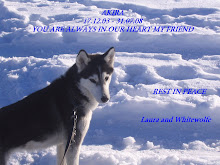
The Role of Ojibwe Elders
People sometimes hear about Indian Elders and wonder,
what is the role of Elders in Ojibwe life?
A big part is teaching and giving advice.
Elders have been through life.
We know what it’s going to be.
We know what you have to do in order to survive.
One thing that is very important for Elders
to do is to teach the customs
that were taught to us by our grandparents.
From our ancestors comes wisdom.
The things my gramma told me are the things
my children and grandchildren need to learn, too.
Elders pass along information about
the Ojibwe culture, such as why we use tobacco
in our ceremonies, why we go to drum feasts,
or why we have naming ceremonies.
We teach our children and grandchildren
about the different ways our People have lived
and the things we do. For example, in the fall,
the Ojibwe traditionally go out to harvest wild rice.
I taught my daughters and my sons
what they’re supposed to do when they go ricing,
and hopefully they will pass that knowledge
on to their children.
Elders also teach about hunting,
fishing and berry picking. We teach that whatever you do,
you shouldn’t be greedy.
Take what you need and leave some for someone else
and for the Great Spirit as well,
so he can give us some more rice or game
or fish or berries next year.
It is also an Ojibwe custom to help others and take care of them.
When folks used to leave their homes
and go somewhere for a while,
they would leave a little food on the table
in case someone who was hungry came by.
All the old customs are what have kept
our People going over the years,
so Elders try to make sure those customs are carried on.
It’s knowing all these things that have kept me going,
and that will keep my children and grandchildren safe and strong.

We also give advice on how to live, how to get along,
and how to help those who are unable to help themselves.
I give advice to my children, my grandchildren,
and whoever else will listen.
I’ve got oodles and oodles of relatives – grandsons,
granddaughters, nieces and nephews.
I tell them don’t try to be better than someone else.
You’re just as good as anybody else,
but you’re not better than anyone else, either.
Most of us Elders are this way.
We want our People to have good lives after we go,
so we try to be a good role model
for them now so they will live right.
By Beatrice Taylor
(Mille Lacs Band of Ojibwe)
























No comments:
Post a Comment